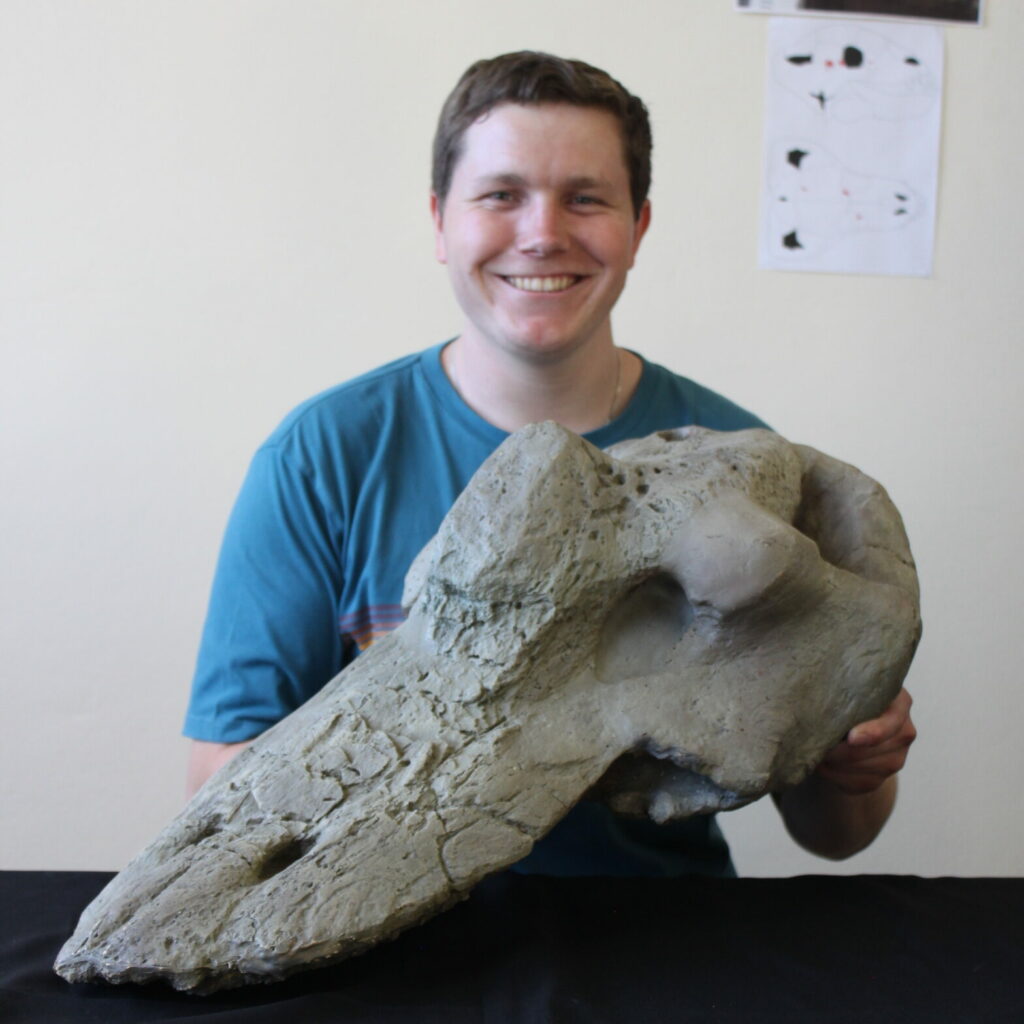Andrew Bolton
PhD Candidate
Evolutionary Studies Institute, University of the Witwatersrand

Biography
I am currently doing a PhD in palaeontology, I have a background in geology, geography, and zoology, and I have worked on theropods and early therapsids.
I have always been fascinated by the reconstruction of the behaviours, lifestyles, and capabilities of animals from prehistory. In pursuit of this, my current research examines a group of large early therapsids called the dinocephalians. This group is known for their massive, dense, and robustly constructed skulls, which were adorned with various kinds of horns and bosses, and are theorised to have been used in intraspecific head-butting
I am investigating the evidence for this using computer simulations on 3D models (finite element analyses), palaeopathologies, and measuring the dimensions of neck vertebrae.
Aside from this, I am deeply interested in wildlife, and exploring the rich history and geography of South Africa.
Disciplines
Therapsid evolution, biomechanics, finite element analysis
Fields of study
Dinocephalians were a group of therapsids that dominated carnivorous and herbivorous niches of terrestrial ecosystems in the middle Permian. Species within this clade often have skulls with considerable pachyostosis (overly thickened bones) and cranial ornamentation (horns and bosses). This morphology, along with adaptations of the braincase, occiput, and cervical vertebrae has been interpreted as evidence for head-butting. I intend to perform finite element analyses on 3D models of dinocephalian crania to address whether these skulls had the structural integrity necessary to withstand the stresses and strains involved in head-butting combat. I intend to validate the accuracy of these analyses by studying the distribution of palaeopathologies. Lastly, I will be measuring the dimensions of dinocephalian cervical vertebrae to more accurately reconstruct the specific styles of cranial combat used in this group. This research may have profound implications for the behavioural complexity of such an early therapsid group, and consequently, may provide evidence of gregariousness that pre-dates other instances in tetrapods by hundreds of millions of years.
Awards and recognition
- Postgraduate Merit Award
